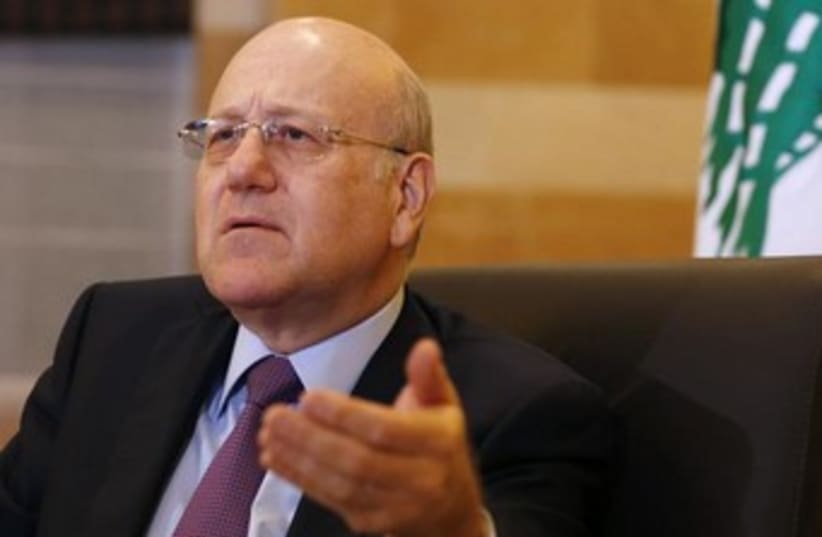Lebanese President Michel Aoun on Monday held a brief meeting with leading businessman Najib Mikati, set to receive the backing of a majority of parliamentarians later in the day to try to form a government.
Mikati, who has been prime minister twice before and unlike many Lebanese leaders does not hail from a political bloc or dynasty, did not give any statement after the meeting that formally began consultations to designate a prime minister.
Like the previous nominee, Saad al-Hariri, he faces major challenges in navigating Lebanon's power-sharing structure to secure agreement on a cabinet to tackle a crippling financial crisis.
While Lebanon has been run by a caretaker administration for nearly a year, since a huge blast devastated large parts of Beirut, its currency has collapsed, jobs have vanished and banks have frozen accounts. The economic freefall is Lebanon's worst crisis since the 1975-90 civil war.
Hezbollah, the heavily armed Shi'ite Islamist movement that Washington deems a terrorist group, nominated Mikati in Monday's consultations and most of the main parliamentary blocs supported the nomination.
"Today, with signs that hint at the possibility of forming a government ... that's why we named Mikati, to give an extra boost to facilitate forming a government," Muhammad Raad, the leader of Hezbollah's parliamentary bloc told reporters.
Among Mikati's endorsers was Hariri, who abandoned his effort to form a new government last week after nearly 10 months of failing to agree its makeup with Aoun.
Hariri told reporters after meeting Aoun that he hoped Mikati would be chosen and succeed in forming a cabinet.
"The country has a chance today," he said.
The news of Mikati's likely designation boosted the Lebanese pound on the unofficial parallel market, where dollars changed hands at around 16,500 pounds, compared to over 22,000 at the height of the deadlock over the government.
In Lebanon's political system, the post of prime minister has to be held by a Sunni Muslim, while the presidency is held by a Maronite Christian.
Western governments have been piling pressure on Lebanon, one of the most heavily indebted states in the world, to form a government that can set about reforming the corrupt state. They have threatened to impose sanctions and said financial support will not flow before reforms begin.
